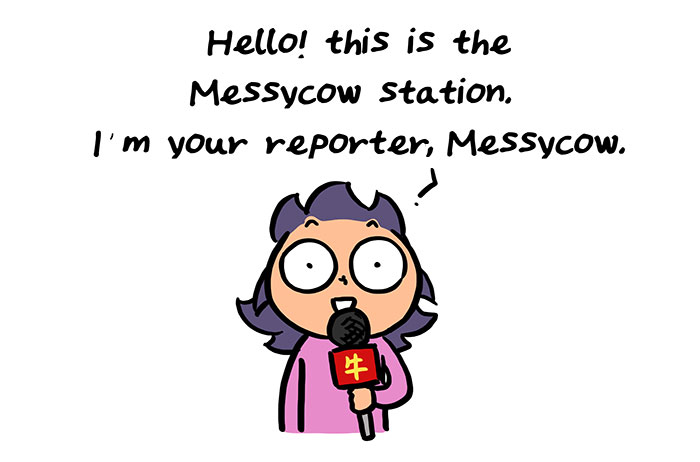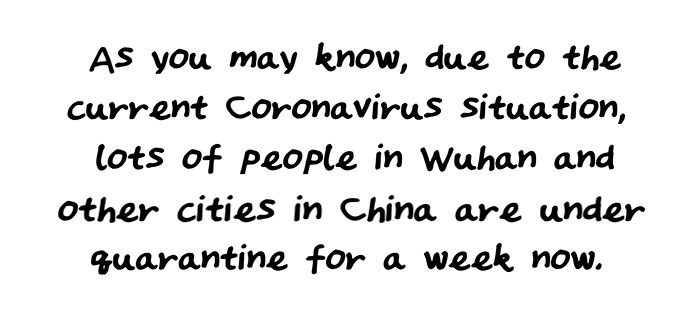The coronavirus has been confirmed in more than 25 countries and territories since it was first detected in the Chinese city of Wuhan in December. In a way, it has also touched Weng Chen, the creative mind behind The Messycow Comics. The artist from Wuhan said that some of her friends had been fighting it and suffering in hospitals. Fortunately, all of the people close to her are fine now.
Focusing on the bright side, Chen ‘conducted’ a few fictional interviews from the epicenter of the outbreak. “At the time [I made this comic], I thought the virus was under control. But I’ve got more inside information these days and it’s depressing,” the artist said. “Anyway, just want to share it with you. I’m on my way to making more comics about it. Stay healthy, my
friends.”








